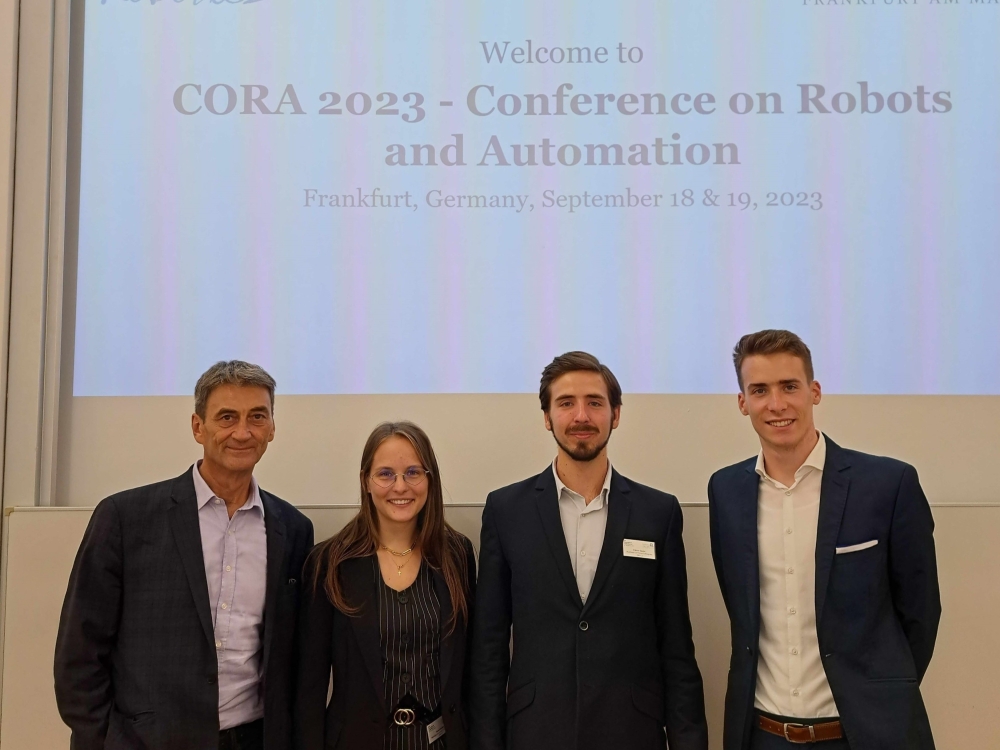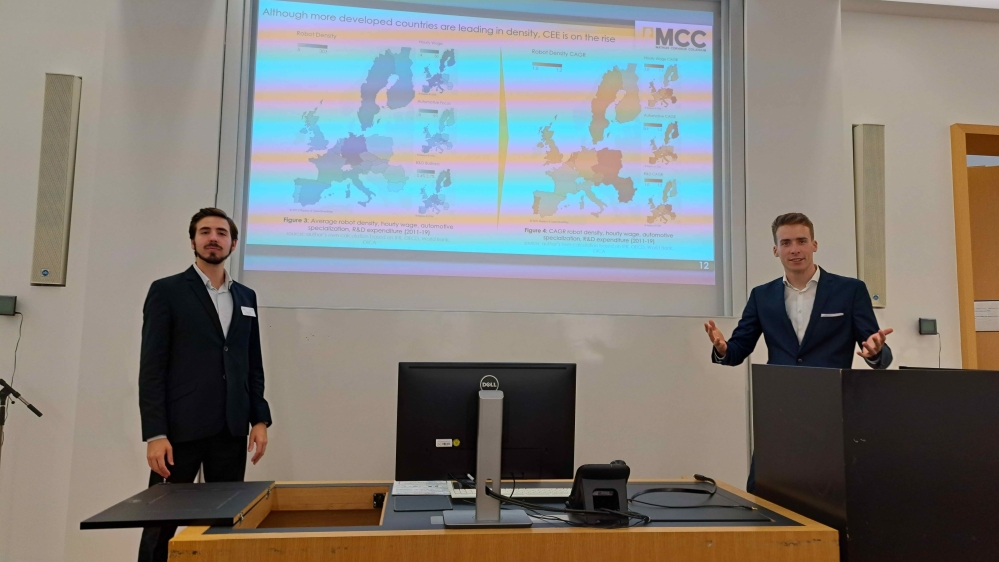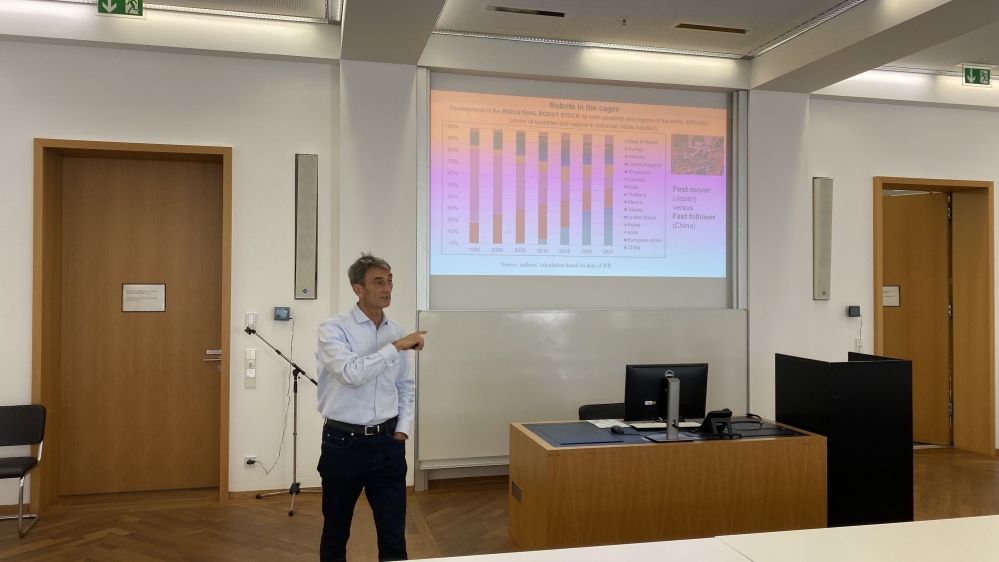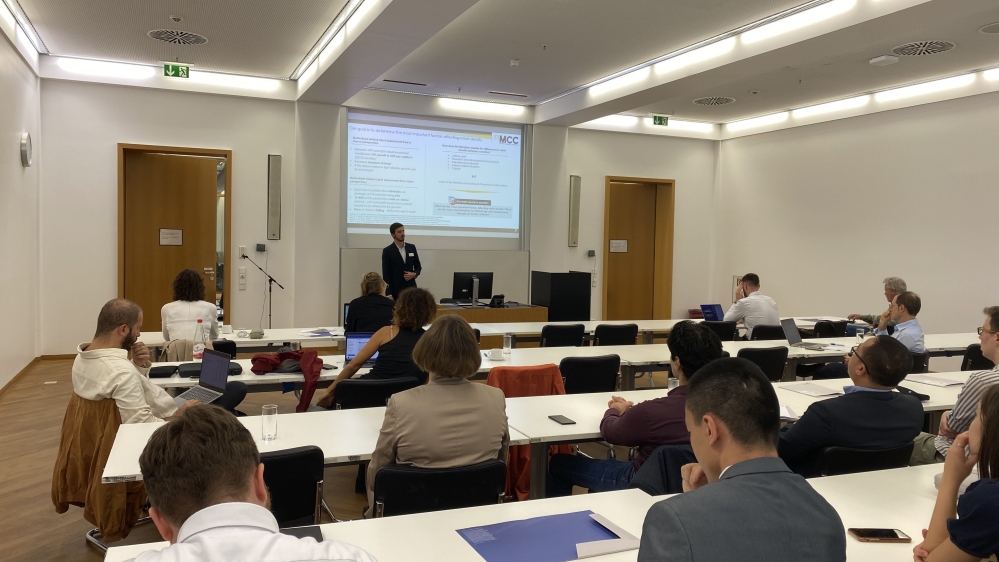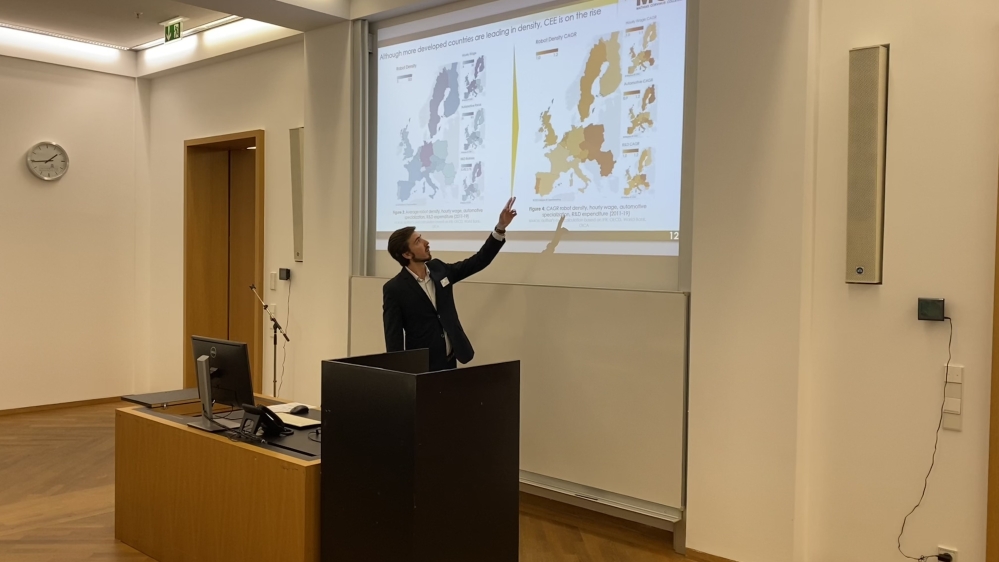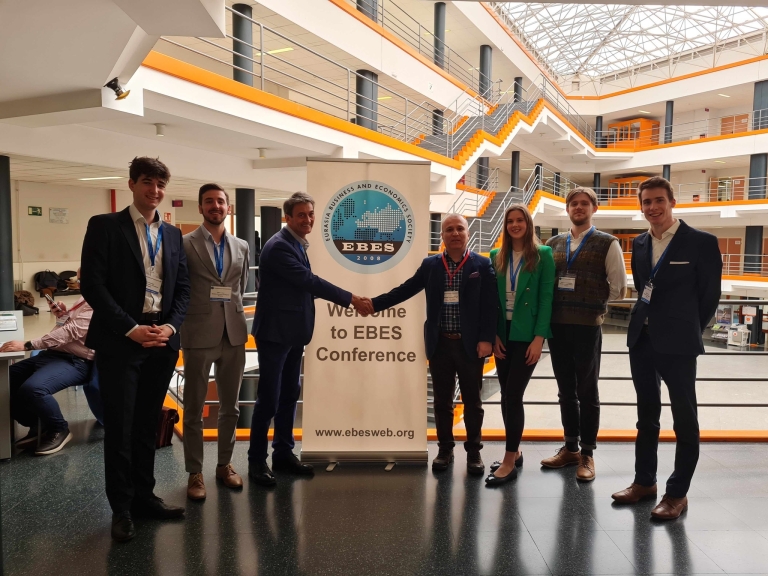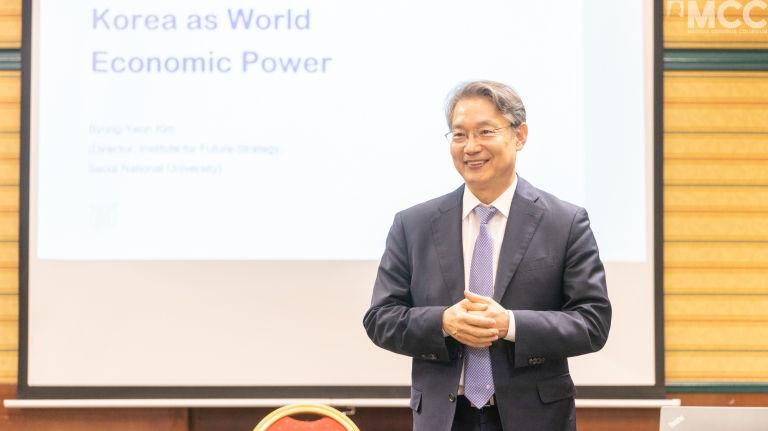The CORA (Conference on Robots and Automation) conference, co-organised by the International Federation of Robotics and Goethe University (Frankfurt am Main), held its second gathering this year on September 18/19. The conference served as a platform to connect all economists and researchers working in the rapidly expanding fields of robotics, automation, and artificial intelligence. Several papers were presented concentrating on the micro- or macroeconomic implications of robotics, automation, and artificial intelligence. There was a mixture of empirical, theoretical, and policy-oriented studies forming a good balance between each other.
The keynote speech, delivered by Anna Salomons from Ultrecht University, opened the conference with some intriguing thoughts and statistics concerning expected changes in the labor market due to robotization. This was followed by ten sessions, spaced over the two days, allowing time for discussion and opportunity to reflect. There was a variety of new approaches and data, enriched by challenging each other's research and collaborative thinking.
Topics such as employment, inequality, productivity and trade, financial markets, AI, environment and health, and technological change were discussed in depth. The good news is that with help of different methodologies the vast majority of speakers have a positive outlook on the long-term effects of robotization and automation. Several studies found, that looking at the longer run, robotization will create more and higher quality jobs, and could also be helpful in solving inequalities. But, we have to keep in mind, that there will most likely be a period where robots will cause mass unemployment until we can adapt to the new situation and restructuring of job opportunities.
In the session on Productivity and Trade, Viktor Lázár presented his joint work with Máté Ujvárosi titled ‘The Determinants of Successful Countries’ Industrial Robot Performance’. They investigated robot stocks and density worldwide, finding that countries in Asia are performing better in both aspects than most in the EU and the USA. Examining many aspects of the issue, they concluded, that robot density can be boosted by placing emphasis on the following three areas: improving hourly wages, avoiding overregulation and rethinking tax incentives and government involvement.
Prof. Zoltán Cséfalvay served as the chair of the closing session on Robots and Technological change. Here, he delivered his findings on his research ‘The Dynamics Between Startups and Incumbents in Service Robot Manufacturing’, delving deep into statistics on large manufacturing companies and emerging small robotics start- ups. He highlighted the difference between industrial and service robots, drawing attention to the ways in which the two types should be treated separately and what their future will hold. As he phrased it, “the robots are breaking out of cages” and we need to understand how to adjust and plan accordingly.
The programme of the CORA (Conference on Robots and Automation) conference is available at the link below:
